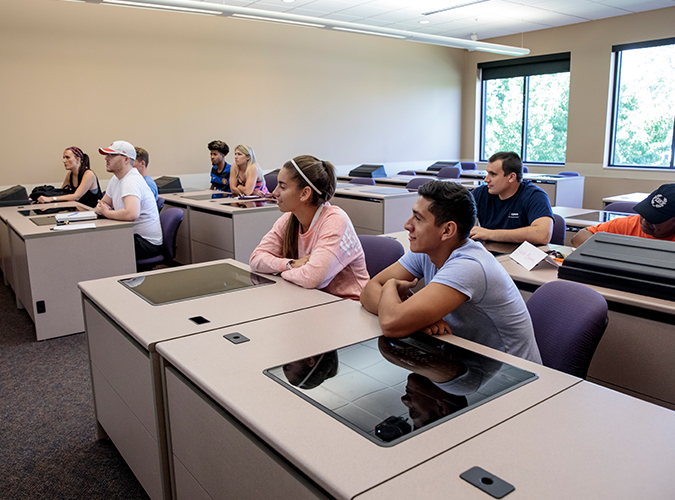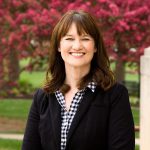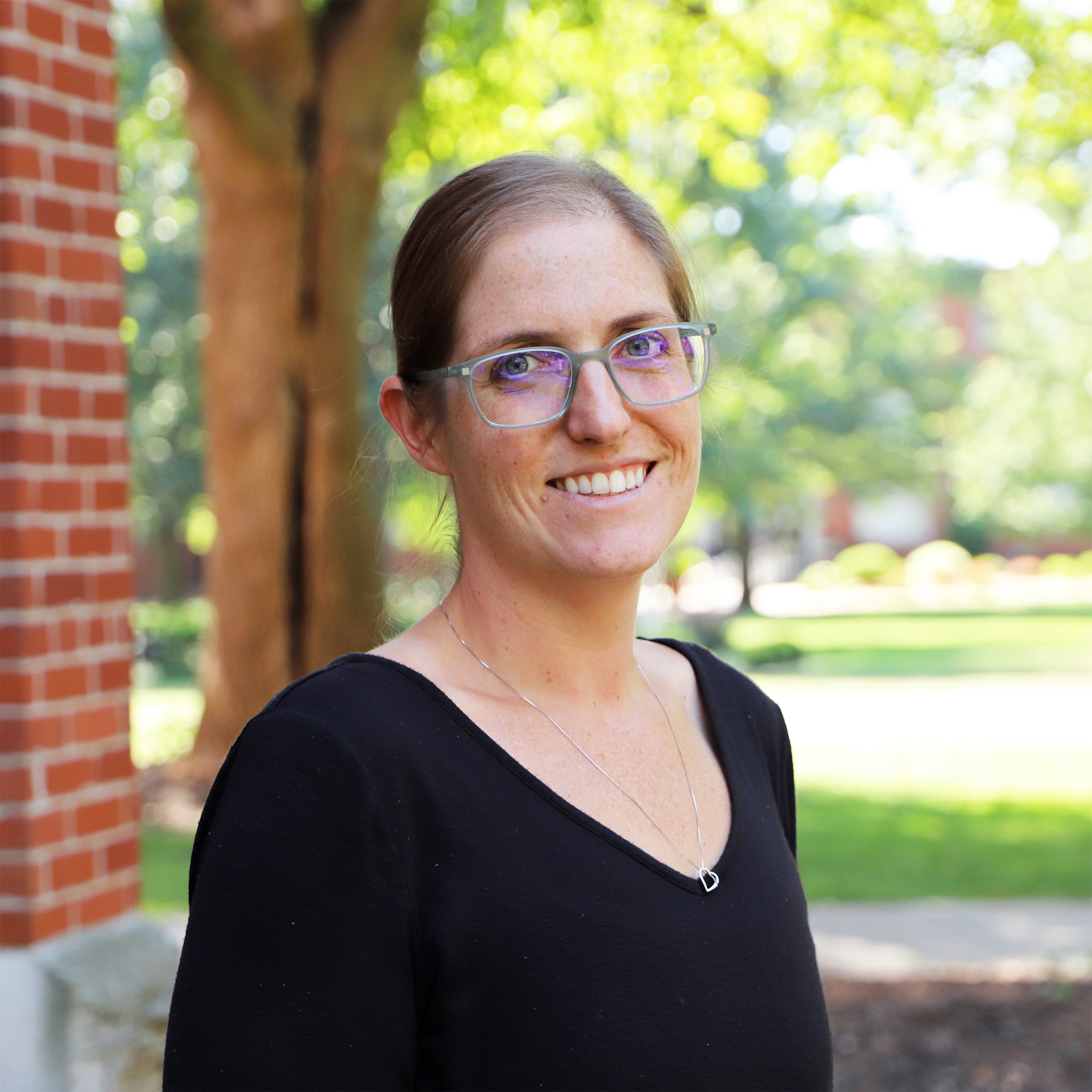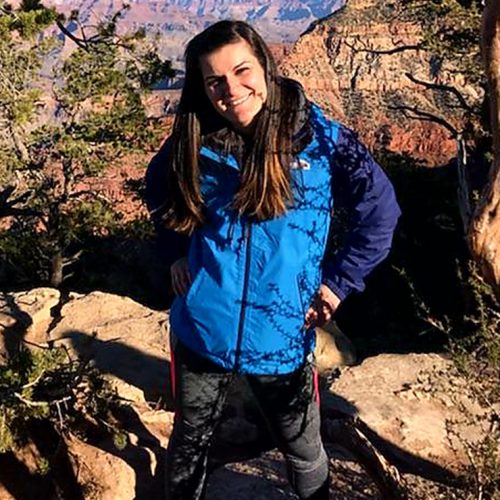Master of Arts in Community Counseling
- The Master of Arts in Community Counseling program provides education and training for those intending to pursue a career as a professional counselor.
- Two year, 6 semester program
- Two options:
- 48 hour program fulfills Missouri requirements for provisional licensure
- 60 hour program fulfills requirements of most other states for applying for licensure; requirements and procedures vary state-by-state
- Two options:
- Hybrid format allows students to attend classes on campus once per week, which provides face-to-face instruction and in-person relationships with instructors
- Classes are held in the evenings to allow students flexibility with their schedules
- Assistantship positions (work on campus and receive full tuition remission) are available
- Small class sizes mean individualized attention
- Instructors are practicing licensed professionals with real-world experience
- A variety of practicum and internship opportunities in the local community and regional area

-
How to Apply
Applications should be submitted by July 1 for Fall enrollment, and November 1 for Spring enrollment. However, applications will be continued to be reviewed until classes begin as space allows.
Complete the online application.
Select “Graduate Student–New” and “Community Counseling” for the program.
Once you submit your application, a personal portal will be created. Other materials to upload and attach there include:
- A baccalaureate degree from a regionally accredited institution of higher learning with a major in Psychology or a closely related field. If the bachelor’s degree is in another closely related field, students must complete the following undergraduate courses: General or Introduction to Psychology, and two other Social Science courses. These must be completed prior to starting any MACC classes.
- Minimum undergraduate GPA of 2.5 (on a 4.0 scale) for the last 60 hours of undergraduate work.
- A personal statement (1-3 typed pages) regarding your interest in pursuing an advanced degree in the helping profession. The personal statement should address one’s reasons for pursuing a Master of Arts in Community Counseling and one’s professional goals following graduation.
- Two or more letters of professional recommendation. The letters of recommendation should be from former professors, supervisors, or other professionals familiar with the candidate’s academic, personal, or professional integrity.
After receipt of application materials, applicants will be contacted for interviews. An interview is required of prospective students. Upon completion of the interview, a letter informing the candidate of acceptance or denial into the program will be issued. If accepted, the candidate must submit a “Letter of Intent” to enroll in the program within twenty-one days of receiving the acceptance letter. Failure to provide a “Letter of Intent” within the designated time period may result in withdrawing the offer letter provided by the program.
If you have any questions or for more information about the program, please email or call the MACC Director, Adrianne Fuller-St. John, at stjohna@moval.edu or (660) 831-4564.
-
A Degree in Community Counseling
If you are interested in becoming a counselor, you probably feel inspired to help and support others. A Master degree in Community Counseling from Missouri Valley College prepares you to become a Licensed Professional Counselor and work in a variety of settings and with a variety of populations or concerns.
Licensed Professional Counselors (LPCs) enjoy diverse employment opportunities, such as working in private practice, community mental health centers, and inpatient treatment facilities. They can work with adults, children, families, and couples. A degree in Community Counseling opens you up to many opportunities in the helping professions and provides you the skills and training needed to be able to support others through difficult times.
According to the U.S. Department of Labor’s Bureau of Labor Statistics, employment of mental health counselors is projected to grow 20% from 2016 to 2026, much faster than the average for all occupations.
-
Learning Outcomes
- Possess foundational knowledge, skills, and attitudes appropriate for a successful professional in the counseling field
- Demonstrate reflective thinking and decision-making rooted in self-awareness and self-understanding for establishing and creating healthy therapeutic relationships
- Demonstrate an integration of knowledge, theory, and clinical application
In addition, the program has educational training goals for students that are based on the educational objectives of the National Board for Certified Counselors.
-
MACC Student Handbook
The mission of the Master of Arts in Community Counseling (MACC) program is to prepare our students with the theory and skills to counsel individuals, couples and families of diverse cultural backgrounds.
To view Student Handbook click here.
Faculty

Instructor, MACC Program

Assistant Professor, Counseling
Course Offerings & Descriptions
-
CN 501. Counseling Theory (Foundation Course). 3 credit-hours.
This course will cover major theories and techniques of counseling. Students will come to understand essential counseling skills, therapist variables that affect the therapeutic process, and the selection of appropriate interventions.
-
CN 502. Ethics and Professional Orientation (Foundation Course). 3 credit-hours
This course examines professional ethics and legal issues, including professional roles and responsibilities in various counseling settings and areas of professional specialization. The course emphasizes the application of the American Counseling Association’s ethical standards to clinical situations.
-
CN 502. Ethics and Professional Orientation (Foundation Course). 3 credit-hours
This course examines professional ethics and legal issues, including professional roles and responsibilities in various counseling settings and areas of professional specialization. The course emphasizes the application of the American Counseling Association’s ethical standards to clinical situations.
-
CN 503. Relationship Dynamics (Foundation Course). 3 credit-hours.
This course will focus on building therapeutic relationships as students learn the theory and skills necessary to forming and maintaining relationships in a clinical setting from the interview to the counseling session. Primary attention will be paid to attaining professional knowledge to foster effective interpersonal skills in multiple professional contexts.
-
CN 504. Human Lifespan Development (Foundation Course). 3 credit-hours.
The course explores theories that describe human growth as a developmental process from infancy through maturity. Special focus will be provided on understanding important developmental stages in order to inform sound counseling practice.
-
CN 505. Appraisal of the Individual (Foundation Course). 3 credit-hours.
The focus of this course is on the analysis of concepts, methods, and procedures utilized to provide a better understanding and evaluation of individuals. This will include the theory and practice of assessing problems through various interviewing techniques and psychological testing methodology.
-
CN 506. Career Development. 3 credit-hours.
The course examines vocational choice theory and the relationship between lifestyle and occupational choice. The course is intended to enhance a student’s ability to help others in the process of making career choices.
-
CN 507. Group Therapy. 3 credit-hours.
Students will consider a variety of theories on the dynamics of group therapy. Students will come to understand the powerful change afforded by this approach and the different models associated with conducting group psychotherapy.
-
CN 508. Social and Cultural Diversity. 3 credit-hours.
This course prepares students to work professionally with individuals from populations diverse in age, disability, religion, gender roles, socio-economic status, urban and rural cultures, and ethnic origins. A primary focus of this course will be exploring cultural differences and understanding personal biases toward individuals from diverse cultures.
-
CN 509. Research Methods. 3 credit-hours.
This course trains a counselor to be an educated consumer of research. It is designed to help the student understand how research can direct best clinical practice and inform theory and interventions for services.
-
CN 510. Psychopathology I. 3 credit-hours.
This course focuses on factors involved in normal and abnormal human behavior. Students explore the etiology and diagnosis of disorders as described in the current issue of the Diagnostic and Statistical Manual of Mental Disorders (DSM). Historical context, current research, principles of lifespan development and cultural diversity, and appropriate treatment for particular diagnoses will be explored. This course is the first of two diagnostic courses, covering approximately half of the DSM disorders.
-
CN 511. Psychopathology II. 3 credit-hours.
This course focuses on factors involved in normal and abnormal development. Students will explore the etiology and diagnosis of disorders as described in the current edition of the DSM. Historical context, current research, principles of lifespan development and cultural diversity, and appropriate treatment for particular diagnoses will be explored. This is the second of two diagnostic courses, covering the major DSM disorders not examined in CN 510 Psychopathology I.
-
CN 512. Marriage & Family Therapy. 3 credit-hours.
This course will study the numerous conceptual theories utilized in working with family systems with special attention to the theoretical and practical aspects of working with couples and families, the primary focus falling on systemic interventions. Multiple perspectives will be utilized as students learn to choose techniques that fit specific family situations.
-
CN 514. Children and Adolescent Therapy. 3 credit-hours.
This course investigates disorders of this age group and various approaches to treatment. It will entail interviewing techniques, methods of evaluation, and treatment for this age population including an introduction to specialized treatment modalities for children. Ethical standards and legal requirements will also be integrated.
-
CN 516. Addictions Counseling. 3 credit-hours.
This course focuses on the nature and development of addiction as both an individual and societal problem, with special attention to the properties of addiction, the physical consequences of misuse and treatment issues and skills. This class provides the necessary foundational skills to work with individual who misuse and abuse substances along with understanding the addiction cycle process.
-
CN 517. Human Sexuality. 3 credit-hours.
This course focuses on the sociological, physiological, psychological origins of human sexual behavior with an emphasis on the etiology of abnormal sexual behaviors displayed in the clinical populations. Special focus will be on educating students on assessing and treating topics related to sexual disorders and dysfunction.
-
CN 521. Practicum. 3 credit-hours.
The practicum is designed to give students a limited experience in a specialized area of counseling supervised by both a designated on-site supervisor and a faculty member. Prerequisite: CN 501, CN 502, CN 503, CN 504, CN 505 and 15 additional hours of CN coursework.
-
CN 522 & CN 523. Internship. 3 credit-hours each.
This supervised clinical experience will provide an intensive exposure to the training in the knowledge, skills and attitudes embodied in the role and functions of the professional counselor and will contribute substantially to the continuing personal and professional growth of the student. The Practicum Coordinator will assist students in identifying suitable placements for internships. Prerequisites: CN 521
-
CN 518. (Elective) Psychopharmacology. 3 credit-hours.
This is a course designed to teach the fundamentals of psychopharmacological agents most commonly used in mental health. Topics include the fundamentals of neurobiology; how and why the body reacts to different drugs; types of psychotropic drugs commonly used for mental health conditions and the nature of their actions; indications and contraindications of different drugs; common dosing guidelines; and side-effects and other related risks.
-
CN 519. (Elective) Trauma/Crisis Counseling. 3 credit-hours.
This course is designed to introduce students to crisis and disaster counseling: theories and techniques for the evaluation and management of behavioral emergencies and other crises that confront counseling clients and individuals in the community.
Turning your passion into a career
See how our mission of guiding students to succeed through personal instruction and intellectual inquiry has positively impacted our Vikings!
